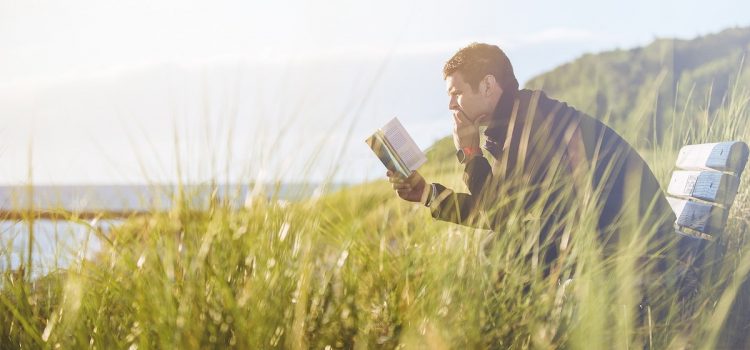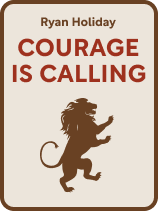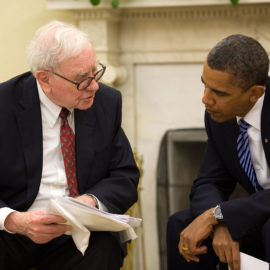

This article is an excerpt from the Shortform book guide to "Courage Is Calling" by Ryan Holiday. Shortform has the world's best summaries and analyses of books you should be reading.
Like this article? Sign up for a free trial here.
Do you consider yourself to be brave? What if you cultivated more courage in your life?
In Courage Is Calling: Fortune Favors the Brave, Ryan Holiday teaches the meaning of courage through the lens of Stoicism. He argues that every person has the innate ability to be courageous. When you overcome fear and choose to do the right thing every day, you can effect positive change in the world.
Keep reading for an overview of this inspiring and practical book.
Courage Is Calling: Fortune Favors the Brave
Stoicism is a philosophy that teaches people to live a good life by developing their personal virtues. This school of philosophy was founded in third-century BCE Greece and was later adopted by influential Roman philosophers, including Seneca, Epictetus, and Marcus Aurelius. Stoicism has endured in Western thought for centuries, and its practice continues today.
Holiday is one of the most well-known modern-day philosophers. He has written and co-written several bestselling books on Stoic philosophy, including The Obstacle Is The Way, Ego Is the Enemy, and The Daily Stoic. Courage Is Calling: Fortune Favors the Brave is the first book in his four-part series highlighting the cardinal virtues of Stoicism.
We’ll define courage and consider how it relates to apathy, heroism, fear, and love. We’ll also teach you how to:
- Figure out the right thing to do in any situation
- Deconstruct your fears to remove their power over you
- Break free from the fear of what other people think of you
- Take control of your actions
- Make difficult decisions
- Live a courageous life guided by love
What Is Courage?
Holiday defines courage as doing the right thing even though you’re scared. He argues that courage is the opposite of apathy, and he distinguishes between courage and heroism.
Holiday argues that the opposite of courage is not fear or cowardice: It’s apathy and despair. If courage is overcoming fear and moving to action, apathy is giving into fear by choosing not to act. Courageous people are driven by hope instead of fear. They believe in a better future and work toward it by trying to find solutions for the world’s problems.
Holiday also makes a distinction between courage and heroic action. Heroism is specifically courage in the service of other people. According to Holiday’s definition, heroism always involves courage, but courageous actions aren’t always heroic.
How Do You Know What the “Right Thing” Is?
Holiday defines courage as overcoming fear to do the right thing. But how do you identify the right thing to do?
The Right Thing Is the Thing You Fear
According to Holiday, the right thing to do is that which helps good to overcome evil. He also argues that the right thing to do in any situation is almost always the hardest choice or the choice you fear. This is because doing the right thing often requires you to disrupt the status quo, which leads to consequences and pushback.
Fear Leads to Growth
Holiday notes that, just as fear warns you that a situation is dangerous, it also signals a chance for you to be brave and to grow as a person. If you never hesitate before deciding which action to take, you’re probably not giving yourself enough chances to grow. Rather than letting that fear control you, Holiday argues that you should let it point you toward the path of virtue.
Deconstruct Your Fear to Take Away Its Power
Holiday suggests you take away power from your fears by logically deconstructing them. We tend to imagine the worst-case scenario related to our fears, but the truth is often a lot less frightening than we presume it is.
Holiday traces the practice of deconstructing fears and anxieties back to Seneca, a Roman Stoic philosopher, and, more recently, to entrepreneur Tim Ferriss’s “fear setting” exercise. To understand and pick apart your fears, first, consider how likely it is that they’ll come true. Picture the circumstances that would cause them to come true. Then, prepare yourself for these scenarios: This removes the fear of the unknown. Once you’ve thought through your fears and identified solutions to combat them, you’ll be able to move forward with confidence that you can address anything that comes your way.
Fight External Pressures
Holiday argues that one of the main forces preventing us from being courageous is fear of the possible negative consequences of breaking societal expectations. We often make choices based on our fear of what others will think of us. It can be difficult to resist the power of convention, but courageous people continue to follow their purpose even when every external force tells them to stop.
Holiday asserts that true individuals won’t let anyone prevent them from speaking the truth. There are injustices in every society and in every time period, and a courageous person will seek to expose them and rectify them. They’ll speak up against tyranny. They’re willing to be loud, difficult, and unreasonable according to society’s standards, and they keep fighting even when their reputation, their safety, or their well-being is threatened.
When you try to do the right thing and you’re met with opposition and danger, Holiday encourages you to keep going. Hard as it may be, being courageous means making the right choice anyway, regardless of the consequences.
Believe That You Can Make Change
According to Holiday, the first step toward making a positive difference is believing that you can do so. This belief in your own agency allows you to make brave choices that lead to bigger changes. This kind of bravery doesn’t just happen in situations where your life and livelihood are at risk—it’s also in the small choices you make every day.
Once you start making courageous decisions, Holiday argues that you’ll inspire others to be brave as well. Inspiring others creates a snowball effect, leading to change on a wider scale.
Be Accountable for Your Actions
Part of being courageous means accepting responsibility for the decisions you make, especially when something goes wrong or your actions have unintended consequences. We all have moments where even our best intentions get us into trouble. What matters most is how we respond. Holiday states that courageous people don’t try to make excuses, pass blame, or quit when they’re under scrutiny.
Don’t Be Afraid to Make Difficult Choices
Holiday argues that courage requires you to be decisive. You can’t predict the future, so deliberating about a decision for a long time won’t help. To move forward, you’ll eventually have to accept uncertainty and have faith that your choice will work out.
Don’t spend all your time afraid to make the wrong decision. Instead, have the courage to be bold and decisive. When you spend too long analyzing possible outcomes, Holiday asserts that your inaction chooses for you.
Choose Love
Holiday asserts that love is the driving force behind heroic acts of courage. According to Holiday, courage isn’t the opposite of fear. Rather, love is fear’s natural opposite. Love—for other people, for one’s country, for one’s religion, and so on—is what leads people to sacrifice. Love is strong enough to break through our sense of self-preservation and help us transcend from everyday acts of courage to selfless acts of heroism.
Do the Right Thing for the Right Reasons
In his discussions of courage and heroism, Holiday gives an important caveat: To truly represent the virtue of courage, brave actions have to be done for the right reasons. Virtuous courage contributes to the greater good, not a greater evil. When you decide where to place your courage, make sure it’s for a just cause.

———End of Preview———
Like what you just read? Read the rest of the world's best book summary and analysis of Ryan Holiday's "Courage Is Calling" at Shortform.
Here's what you'll find in our full Courage Is Calling summary:
- Ryan Holiday's advice for how to be courageous in any situation
- How to break free from the fear of what other people think of you
- How to take control of your actions and make difficult decisions






